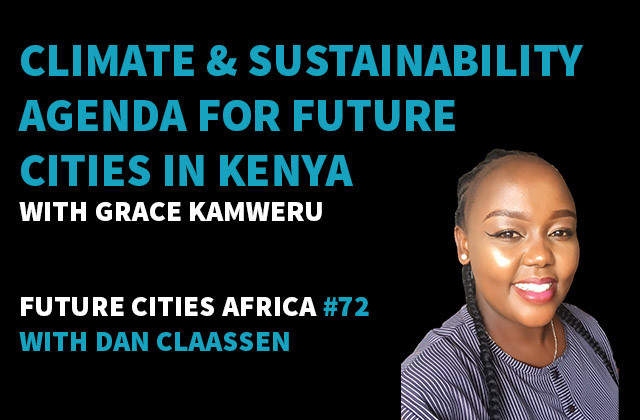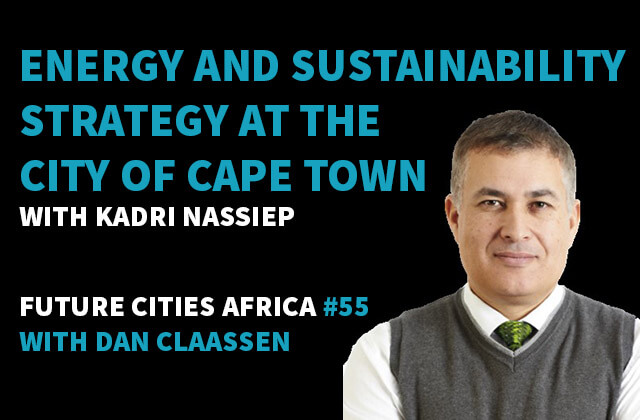Listen to Audio
Transforming Namakwa: The Rise of Green Hydrogen and Sustainable Development
Dive into an illuminating report on the promising development of green hydrogen industries within Namakwa District Municipality. Explore how this emerging sector could transform the local economy and landscape, addressing both the significant potential benefits and the complex challenges faced.
Stay Connected
Episode Summary:
- 00:00:00 In this section Dr Thina Nzo, Programme Manager for the Local Government Programme, Public Affairs Research Institute discussion focuses on the promising development of green hydrogen industries within Namakwa District municipality in South Africa. She elaborates on the challenges faced by rural municipalities in Namaka District and Richtersveld in transitioning into green industrial frontiers. Namakwa District, known for its natural and mineral resources, has experienced an economic decline due to the closure of copper and diamond mines. The area's low population densities, harsh climate, and geographic size pose significant challenges. However, the discovery of green hydrogen as a potential economic opportunity has been seen as a way to transform the area from being dependent on minerals and resources to becoming a frontier for green economies. Namakwa's location on the Atlantic Coast, with its deep ocean and the potential for desalination, provides a comparative advantage for the processing of green hydrogen. The development of a port is also an advantage for future green hydrogen exports to the global North.
- 00:05:00 In this section Thina discusses the comparative advantages of producing green hydrogen in Namakwa, South Africa, including the Atlantic Ocean's proximity to the global North, the availability of renewable energy resources, and the potential for land acquisition. However, she also highlights challenges in acquiring land due to communal ownership and the lack of skilled labor in the area, which could pose significant challenges for the green hydrogen production project. Additionally, Thina mentions the potential for infrastructure development, such as a new port and railway, which could contribute to the project's momentum and create jobs in the region.
- 00:10:00 In this section Thina Nzo discusses the challenges faced in implementing economic development policies, specifically in Special Economic Zones (SEZs) and Rural Economic Development Zones in South Africa. She highlights the case of Namakwa, where a special economic zone policy framework has been developed for mining and potential copper industry revitalization. However, due to the green hydrogen development falling under the Renewable Energy Development Zone, there are now multiple policy frameworks (SEZs, REDZ, and GHDZ) for the same region. Thina notes that many SEZs in South Africa, including those in Namakwa and other regions, have underperformed in terms of attracting foreign direct investments, generating sustainable employment, and benefiting municipalities. The lack of inter-agency coordination, mismatch between sectoral focus and host country's comparative advantage, inadequate infrastructure, poor environmental and social performance, and lack of high-level political support are some of the critical factors contributing to the poor performance of SEZs. She then raises questions about the progress of Renewable Energy Development Zones and Green Hydrogen Development Zones in Namakwa and their potential to make the region economically viable and sustainable. The discussion further explores the role of municipal functions, expenditure trends, and revenue generation in the Namakwa District Municipality in relation to infrastructure development and municipal planning capacity.
- 00:15:00 In this section Dr Thina Nzo discusses the role of various entities in supporting the development of green hydrogen in the Northern Cape province of South Africa. The Office of the Premier and the Northern Cape Economic Development Agency have played significant roles in attracting investments and coordinating efforts at the national level. However, at the local level, district municipalities are expected to contribute to regional and economic planning and provide necessary infrastructure and services to support the green hydrogen industry. The challenge lies in the fact that Nama Khoi, a rural district municipality, has limited economic activities and relies heavily on national government transfers, making it difficult to generate the necessary revenue for infrastructure development to support the projected population growth and industrial activities by 2035. Thina emphasises the need for greater attention and financing for infrastructure development in Nama Khoi and the Northern Cape to accommodate the expected population growth and industrial activities.
- 00:20:00 In this section Thina discusses the challenges faced by district municipalities in providing technical support for infrastructure planning and capacity building for the development of green hydrogen projects. She notes that the rapid pace of development and lack of thorough engagement with local communities are major factors contributing to the district municipality's inability to keep up. Thina emphasises the need for a more bottom-up approach to public participation, where local structures such as ward committees should lead community engagements in their neighbourhoods. She also shares concerns about exclusionary government participation practices where community members feel that their voices have not been adequately heard in the design and implementation of green hydrogen projects. She criticises the centralised approach to public participation, where provincial government agencies call public participation sessions, which are often not effective in engaging communities qualitatively. Thina concludes by expressing concern that community members do not fully understand the concept of the Just Energy transition and the skills required for future jobs in the green hydrogen industry.
- 00:25:00 In this section Thina discusses her concerns with the lack of meaningful participation in an educational program aimed at enhancing skills for local communities and the younger generation to participate economically. She also raises issues with the acquisition of land, which belongs to a community property association, for an industrial activity without substantial beneficiation and ownership for the community. The conflicts arising from these issues could have been addressed through deliberative participation, negotiation, and greater understanding. However, Thina notes that participation has been lacking, and politics played a role in exclusionary practices, with some communities being marginalised based on their political affiliations. The government's use of the program as a flagship for political gains further complicates the situation.







